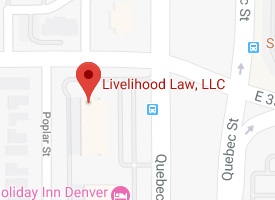
Watching a loved one struggle at work can be challenging. Naturally, you want to help, but you can’t resolve drama or conflicts for a spouse. What can you do? You can lend an ear and listen, give advice or console, and ensure your spouse knows their workplace rights and when it’s time to seek help.
What’s Illegal at Work?
Colorado and federal laws prohibit discrimination and harassment at work, and they also prohibit employers from retaliating against employees who report these workplace violations. But sometimes, knowing the line between “bad” and “illegal” regarding work is hard. Some of the most common illegal practices you might encounter at work include:
- Discrimination: Colorado and federal laws prohibit employers from discrimination based on race, religion, gender, age, sexual orientation, disability, marital status, and pregnancy. But sometimes, you may encounter an employer or supervisor who favors one or more employees over others. Perhaps they receive more praise, preferential scheduling, or more flexibility. While preferential treatment like this might be unfair, it isn’t necessarily illegal unless it’s based on discrimination.
- Harassment: Both Colorado and federal laws prohibit harassment in the workplace, including harassment that creates a hostile work environment. Illegal workplace harassment is harassment based on race, gender, religion, or another protected class. But sometimes, it can be hard to determine the line between harassment and a bad supervisor or co-worker. If, for example, you have a boss who sets unrealistic expectations and uses fear of punishment to “manage” employees, that may be bad management. But a co-worker who starts rumors about you, saying that they don’t trust you because of your race, may be illegally harassing you. Often work conflicts can create a toxic work environment, but a co-worker’s behavior may not be illegal unless based on race or gender.
- Retaliation: If you report suspected illegal employment practices, OSHA violations, or other illegal activity, your employer can’t penalize or fire you. Penalties such as cutting your hours, wages, or bonus, giving you low-performance reviews, or changing your preferred hours or work location would likely be illegal.
- Not Allowing Wage Discussions: Colorado law requires pay transparency, and your employer can’t prohibit you from discussing your compensation with your co-workers. Your employer also can’t make you sign a confidentiality agreement that keeps you from doing so. While wage discussions at work can sometimes cause employee conflict, if your employer is open and transparent about compensation, it can eliminate many of these problems.
What Should You Do?
If your spouse is experiencing discrimination, retaliation, or other harassment at work, there are options. They can:
- Document the problems at work,
- Notify the human resources office of any issues,
- Notify a trusted mentor or supervisor at work,
- Consult an attorney, and
- File a complaint.
Colorado employment attorney Livelihood Law has years of experience representing clients who have experienced discrimination, retaliation, and harassment at work. We can discuss your options and look at potentially illegal employment practices.
Your loved one has rights if a co-worker or employer discriminates illegally. Livelihood Law can help you document issues or file a complaint about illegal employment practices, harassment, retaliation, or discrimination to the Colorado Civil Rights Division or the U.S. Equal Employment Opportunity Commission. We can also help your loved one file a lawsuit if necessary.


